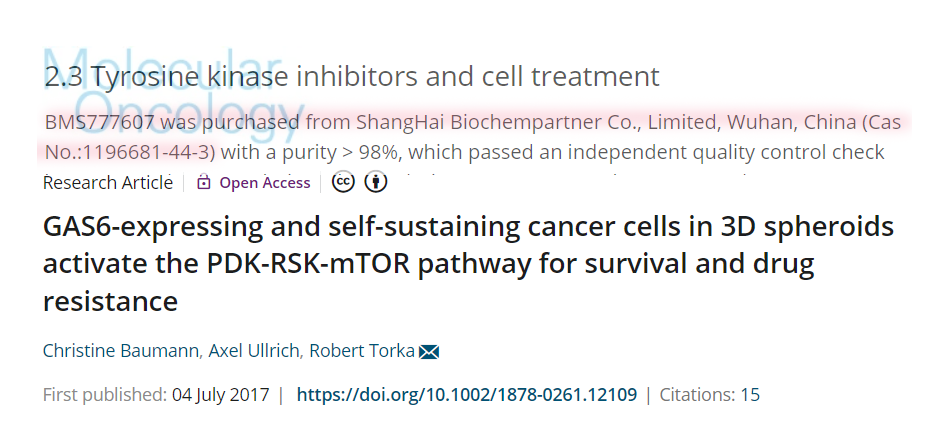GAS6‐expressing and self‐sustaining cancer cells in 3D spheroids activate the PDK‐RSK‐mTOR pathway for survival and drug resistance

Abstract AXL receptor tyrosine kinase (RTK) inhibition presents a promising therapeutic strategy for aggressive tumor subtypes, as AXL signaling is upregulated in many cancers resistant to first‐line treatments. Furthermore, the AXL ligand growth arrest‐specific gene 6 (GAS6) has recently been linked to cancer drug resistance. Here, we established that challenging conditions, such as serum deprivation, divide AXL‐overexpressing tumor cell lines into non‐self‐sustaining and self‐sustaining subtypes in 3D spheroid culture. Self‐sustaining cells are characterized by excessive GAS6 secretion and TAM‐PDK‐RSK‐mTOR pathway activation. In 3D spheroid culture, the activation of the TAM‐PDK‐RSK‐mTOR pathway proves crucial following treatment with AXL/MET inhibitor BMS777607, when the self‐sustaining tumor cells react with TAM‐RSK hyperactivation and enhanced SRC‐AKT‐mTOR signaling. Thus, bidirectional activated mTOR leads to enhanced proliferation and counteracts the drug effect. mTOR activation is accompanied by an enhanced AXL expression and hyperphosphorylation following 24 h of treatment with BMS777607. Therefore, we elucidate a double role of AXL that can be assigned to RSK‐mTOR as well as SRC‐AKT‐mTOR pathway activation, specifically through AXL Y779 phosphorylation. This phosphosite fuels the resistance mechanism in 3D spheroids, alongside further SRC‐dependent EGFR Y1173 and/or MET Y1349 phosphorylation which is defined by the cell‐specific addiction. In conclusion, self‐sustenance in cancer cells is based on a signaling synergy, individually balanced between GAS6 TAM‐dependent PDK‐RSK‐mTOR survival pathway and the AXLY779/EGFR/MET‐driven SRC‐mTOR pathway. Keywords: 3D spheroid, AXL, drug resistance, GAS6, RTK, TKI




